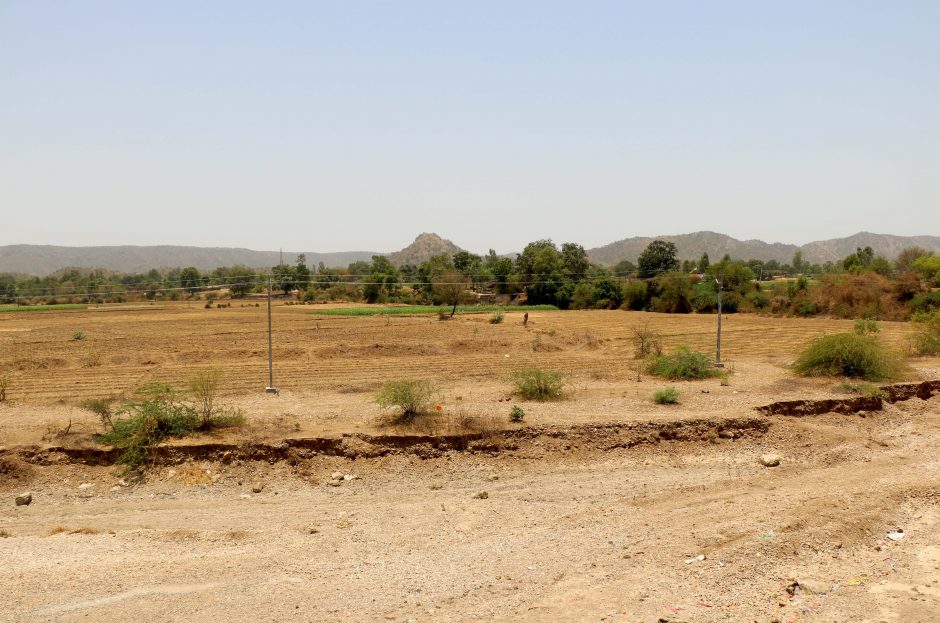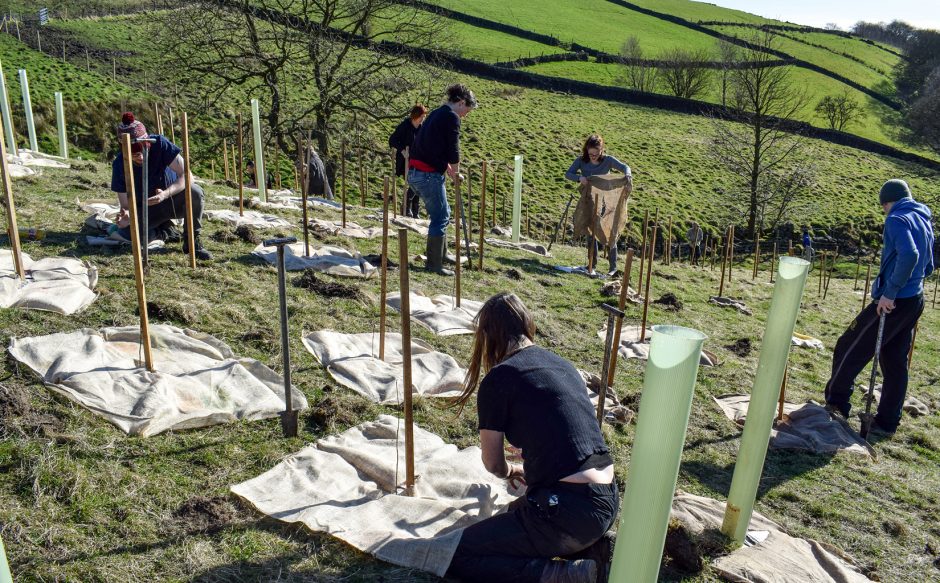Climate change and decarbonisation are the issues that grab the headlines when it comes to the environmental crisis facing the world, but this is not the only pressing problem to attend to. Soil depletion, desertification and deforestation are increasingly worrying, and are prompting a serious rethink of land stewardship.
With a commitment to the UN’s programme for sustainable development, the co-op movement finds itself with a key role to play in tackling these. Many co-op organisations, working in frontline sectors such as agriculture, are working to mitigate their impact or even make positive contributions.
In regions of the world that are already suffering environmental degradation first-hand – from flood-prone English valleys to semi-arid regions of Brazil – co-ops are taking steps to reverse the damage.
In India, a quarter of the land is undergoing desertification – the degradation of land in arid, semi-arid and dry sub-humid areas resulting from various factors. It’s a destructive process that not only destroys crops through lack of rainfall; it leaves the land vulnerable when the rain does come, with nothing to prevent flooding from stripping away precious topsoil.
Destructive human practices driving the change include excessive logging, mining, livestock grazing, slash and burn agriculture and urbanisation.

But co-ops are among organisations fighting back. Residents of Dharmapuri, Tamil Nadu, have spent ten years turning a barren stretch of land into a 250-acre community forest. Tree planting in such areas helps retain water, storing it underground in roots and preventing the erosion of topsoil.
The site is in a water catchment area but suffered desertification through human activity, including deforestation. Semi-arid, the region has lost groundwater because there is a lack of tree cover to hold on to moisture and in 2012 it suffered its worst drought in 140 years; since then it has also experienced floods and cyclones.
It is hoped that reforestation will help to replenish the water table and improve biodiversity. The co-op has worked on other projects to make the land more resilient, building reservoirs to collect monsoon rain.
The forest is shared by the community which created it and they share the profits from the sustainable businesses it supports – including bamboo furniture making, natural cosmetics and organic poultry farming.
Between them, they have a turnover of R1.5 crore a year (£166,000). There are around 70 co-op members living and working in the forest, experimenting with organic food production and ecological living.
In Africa, the dryland ecosystems which are vulnerable to desertification are home to most of the continent’s rural communities. Here, too, co-ops are turning to tree planting in a bid to reverse damage to the land and keep it fertile and productive.
For instance, the Uganda Cooperative Alliance began working with the national government in 2019 to plant trees in a bid to counteract the dry spells affecting the country.
Around the same time, Rwanda’s women-led co-operative, Jyambere Munyarwanda, planted 20,671 trees across 380 acres to improve productivity, community livelihoods, and environmental sustainability.
Charity Tree Aid, founded in 1987 by a group of British foresters, is working with communities across West Africa helping them to set up forest management co-ops, which nurture and protect new and established woodlands; it is also helping them to learn soil and water conservation techniques.
Tree Aid’s co-ops are contributing to the Great Green Wall, an African-led initiative to grow an 8,000km stretch of restored land across the Sahel – the region which stretches across the continent from coast to coast, between the Sahara and the savannah.
South America is also seeing a crisis in desertification. In the Caatinga – a semi-arid expanse of scrubland that covers northeastern Brazil – women-led co-operatives are carrying out tree-planting programmes to counter the threat of drought.
They include Coopercuc, a co-op in Bahia state that grows umbu trees, which survive in the harsh climate by storing water and provide a crop useful for making jam and fruit pulp.
More than 15% of the state’s land is affected by desertification and the region had been gripped by severe periods of drought – lasting for as long as seven years – and soaring temperatures, prompting a rethink of land use.
Coopercuc and other co-operatives across Brazil’s northeast are combining fruit production with reforestation, planting trees among their crops to protect the land.
The reforestation areas are already producing about 10 tonnes of food per year including passion fruit, guava, cashew and mango, as well as up to 40 tonnes of umbu.
There is also a social benefit, especially for women’s co-ops like Coopercuc, with the farm income allowing women to pursue education and secure an independent income.

Similar initiatives are taking place in Europe, too. In the UK, Suma Wholefoods, a worker co-op based in the Calder Valley, West Yorkshire, works with environmental group Treesponsibility on its CO2mittment scheme.
Suma says it plants around 5,300 trees each year to offset the carbon produced by its delivery trucks. Native species are planted to lock carbon into the soil, which at the same time provide a sustainable resource, through coppicing. The woodlands Suma has planted already constitute a carbon sink capable of absorbing thousands of tonnes of CO2 over the next
50 years.
It is also hoped that efforts by Suma and others will protect local communities from disasters linked to the deforestation and soil depletion. In Christmas 2015, the Calder Valley was hit by devastating floods; it is hoped that the tree planting drive will create wetlands to retain water and strengthen river banks.
Preventing such tragedies is a goal shared by tree planting co-ops around the world as they work towards a healthier relationship with the land.

